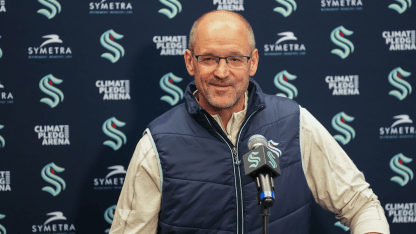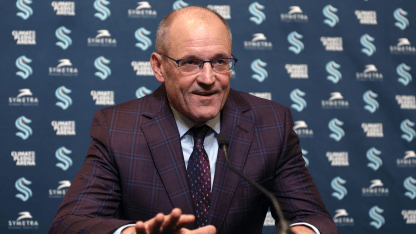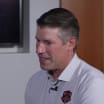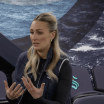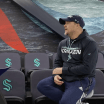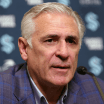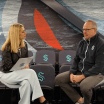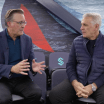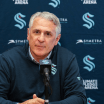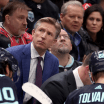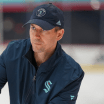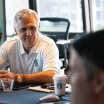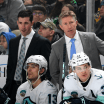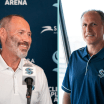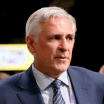This conversation occurred on Oct. 11 after the Kraken’s first game versus St. Louis.
We're going to start with something really hard-hitting here. Where did the nickname “Disco Dan” come from?
It was 1994, I believe. It was during the NHL work stoppage. I was in the IHL in Phoenix, LA's farm team, and Byron Dafoe came down to play with us during the work stoppage. He walked into our dressing room and said, “My nickname is ‘Bizy,’ (which is what the guys were calling me at the time); you have to get a new nickname.” He declared it in front of everybody. It was a big deal. So I went into nickname limbo for a period of time during which my nickname went from ‘Bizy’ to five or six or seven or eight or nine or ten other nicknames over the course of a month, month and a half, as I was trying to get out of nickname limbo.
“Disco Dan” was one of the names that eventually stuck. From that point on, I've been Disco Dan – it’s followed me. You know, you don't always get to choose (your nickname). You might not always like it, but they seem to stick. It's followed me up to LA when I played there, and to Anaheim when I played there, and then I started coaching in the Anaheim organization, and so I was coaching some of the players that I had played with, and Disco Dan kept on following me around. It's, it's stuck now for -- I'm not good at math --- for a long time.
What excited you about the opportunity to become the head coach at the Seattle Kraken?
I think the familiarity with the people and the players, and the organization. You want the opportunity (to work with) good people, and you want the opportunity to work with good players. I’ve spent a lot of time with (Kraken general manager) Ron Francis over the last two or three years in Charlotte (for the 2021-22 season, Bylsma served as an assistant coach with the AHL Charlotte Checkers, where Kraken prospects played), and in Coachella (Bylsma served as head coach of the Kraken’s AHL affiliate for the past two seasons).
I've had a relationship with (Kraken assistant general manager) Jason Botterill going back to the Pittsburgh days for the six years when I was there. And so those relationships get me excited. The people in the organization, and the enthusiasm and the positivity… it’s infectious right from our ownership down to Ron and continues onto the players. So, it's an exciting opportunity because of that.
When you were first hired by the Kraken, what were some of the clearest opportunities for growth that you saw with this team, even from afar?
I think really building on the positives that are already evident and already there. They had success two years ago in the playoffs, getting 100 points in the season, being a fast team, being a deep team with 12 good forwards. They were strong throughout the defense and were a hard team to play against because they were fast. And I think the biggest chance for growth is just changing the mentality, a little bit of how we play, and making sure that we're playing fast, making sure that we're playing as a deep team, and building on the positives that are already evident on this team.
You have the unique opportunity to have seen some of your former Firebirds players become NHL-caliber players. How special is that? And how rewarding is that for you as a coach to see that growth?
That's what coaching is all about for me personally - working with players…with individual players, working with the team, and seeing them become the best they can be. And that's Ryker Evans, over the last two years, growing as a player and growing into an NHLer. It’s Shane Wright or Joey Daccord. Those are all things that I think coaching is all about. And I take a great deal of pride in that growth both individually, in those individual players, but also in the team becoming the best version of what they can become. That's what we're trying to do.

